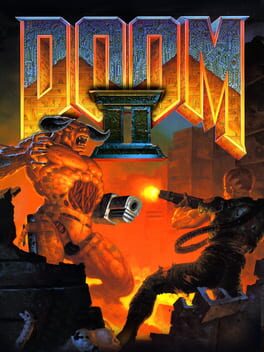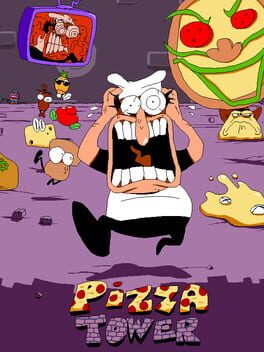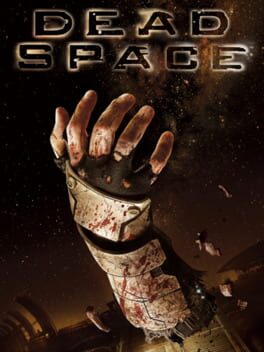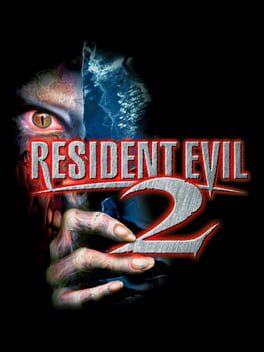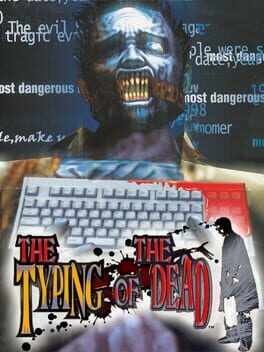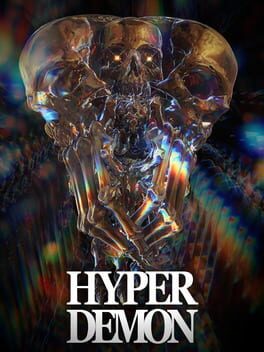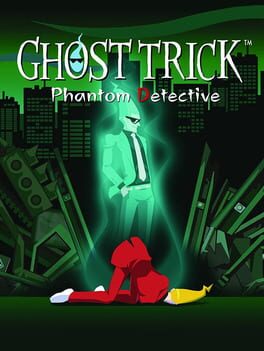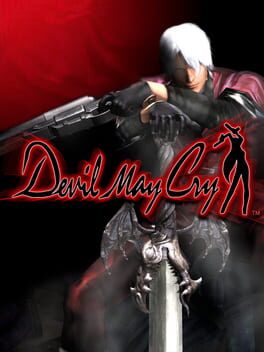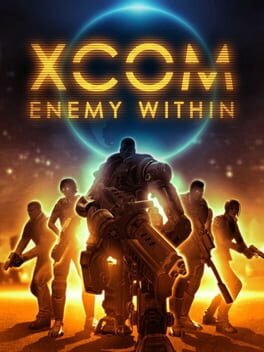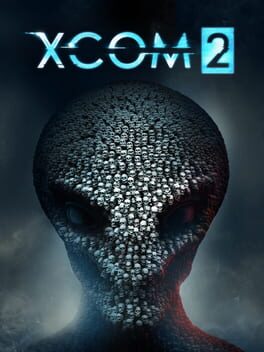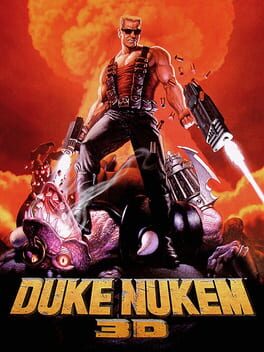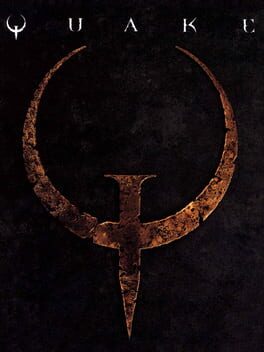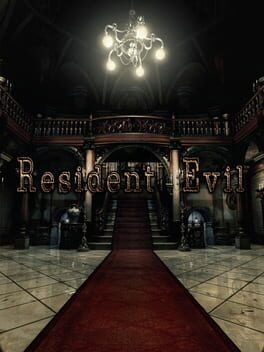twist
[since i changed my mind on this game and raised the score a lot, this review is now obsolete. i'll make it reflect my current thoughts at some point. until then, read it at your own discretion because i say a lot of stupid bullshit that i don't even agree with anymore]
DOOM II is, in every sense of the word, more DOOM. it's an expansion of the 1993 game, with more mobs, more levels, more mobs per level and one more weapon. in theory, you can't really go wrong with that; the original game had polished movement and gunplay, a very well balanced roster of monsters, and id had already set a standard for quality level design.
well, the theory doesn't matter. they managed to fumble this one anyway.
it's a pity because what was added to the gameplay loop is great. the super shotgun is ridiculous; it's brutally powerful and sounds beautiful. i like all of the new demons too, they all add new layers of strategy to encounters and give the level designers even more options to mix and match with.
the main problem with this game, though, is how inconsistent the level design is. three people worked on almost all of the levels: John Romero, American McGee and Sandy Petersen. their ideas didn't mesh well together, since they all had wildly different approaches to level design. without any form of segmentation between those ideas (like the first game had, with episodes), the game becomes an incoherent mess, feeling more like a compilation of maps rather than a proper campaign.
Petersen made the majority of those levels and i'm really not fond of his MO. his maps are usually cheap, frustrating and boring, with loads of encounters that seem poorly thought out and ham-fisted, and with an excessive reliance on gimmicks. there are three gimmicks in particular that the guy appeared to love:
1) the pick-up/trigger trap. you pick up a key, seven trillion monsters spawn behind you. this is done SO MANY times, you get desensitized to it. the traps are done in the most frustrating way too, with dozens of enemies spammed into the level seemingly at random: be them a row of 20 chaingunners or a row of every mob in the game, it always looks like Sandy just placed those enemies without any consideration for the quality of the encounter.
2) the invulnerability power-up. a lot of those shitty trap encounters are done in wide open spaces, with little useful cover. to remedy that, the game will usually give you an invulnerability power-up, so you can just massacre everyone in god mode. that's very fun at first, but, again, it's done ad nauseam. every time i see it happening again it becomes less satisfying. it's an obvious crutch: you don't need to put effort into designing a good fight if you can just throw a bunch of shit at the wall and patch it up with a god mode cheat.
3) the BFG. one of DOOM's most iconic weapons becomes grating in this game. many of Sandy Petersen's levels absolutely depend on the BFG9000. whenever demons get spammed in any way, usually through monster closets, the most effective way to dispose of them is using the BFG. it doesn't feel rewarding, clever or powerful; it's just mind-numbing because of the repetition. however, i can't even begin to fathom how i'd deal with so many situations without the BFG.
Sandy will sacrifice some of DOOM's key strengths, such as intense demon slaying in rooms designed for violence, in favor of tedious tricks. infamous maps like The Chasm, Tricks and Traps, and Barrels o' Fun are the culmination of his design philosophy, one that unfortunately permeates this game.
although those are the worst offenders, various other level design problems plague DOOM II. the city portion of the game has very unintuitive maps. their openness suggests that you can go wherever you want, whenever you want, but they are actually quite linear. that linearity makes little sense because the areas are mostly disconnected from each other, so the entire levels end up being utterly disjointed and having confusing progression.
openness in general rarely does DOOM combat many favors, either. to me, the game is at its absolute best in tighter rooms with reasonable amounts of cover (that also serve as obstacles!!) and in corridors. a prime example of that "openness" harming gameplay is the map Industrial Zone: its best moments happen when you enter certain structures and face the demons up close in neatly designed fights. however, you spend most of your time outside, trying to figure out how to get indoors while doing lame platforming and shooting chaingunners that stand on a flat field a mile away from you.
as i said earlier though, the level design is inconsistent, not straight-up awful. there are many highlights here, too. to name a few, Bloodhalls, The Abandoned Mines, Circle of Death, The Inmost Dens and Refueling Base are pretty good levels, even with their shortcomings (they did NOT know what to do with the pain elementals in this game), and i wish the game had more of that instead of what we got.
as a final note, i think it's worth saying that i don't fully know why Sandy Petersen ended up designing such a large number of levels for this game, but it's very likely that id was the one to blame. he may have been overworked, he may've had too little time to make and playtest them, maybe the game wouldn't even have been shipped if he didn't put out those 16 levels, i don't know. what i know is that his level design is not for me and DOOM II is essentially his game.
played on gzdoom, ultraviolence
DOOM II is, in every sense of the word, more DOOM. it's an expansion of the 1993 game, with more mobs, more levels, more mobs per level and one more weapon. in theory, you can't really go wrong with that; the original game had polished movement and gunplay, a very well balanced roster of monsters, and id had already set a standard for quality level design.
well, the theory doesn't matter. they managed to fumble this one anyway.
it's a pity because what was added to the gameplay loop is great. the super shotgun is ridiculous; it's brutally powerful and sounds beautiful. i like all of the new demons too, they all add new layers of strategy to encounters and give the level designers even more options to mix and match with.
the main problem with this game, though, is how inconsistent the level design is. three people worked on almost all of the levels: John Romero, American McGee and Sandy Petersen. their ideas didn't mesh well together, since they all had wildly different approaches to level design. without any form of segmentation between those ideas (like the first game had, with episodes), the game becomes an incoherent mess, feeling more like a compilation of maps rather than a proper campaign.
Petersen made the majority of those levels and i'm really not fond of his MO. his maps are usually cheap, frustrating and boring, with loads of encounters that seem poorly thought out and ham-fisted, and with an excessive reliance on gimmicks. there are three gimmicks in particular that the guy appeared to love:
1) the pick-up/trigger trap. you pick up a key, seven trillion monsters spawn behind you. this is done SO MANY times, you get desensitized to it. the traps are done in the most frustrating way too, with dozens of enemies spammed into the level seemingly at random: be them a row of 20 chaingunners or a row of every mob in the game, it always looks like Sandy just placed those enemies without any consideration for the quality of the encounter.
2) the invulnerability power-up. a lot of those shitty trap encounters are done in wide open spaces, with little useful cover. to remedy that, the game will usually give you an invulnerability power-up, so you can just massacre everyone in god mode. that's very fun at first, but, again, it's done ad nauseam. every time i see it happening again it becomes less satisfying. it's an obvious crutch: you don't need to put effort into designing a good fight if you can just throw a bunch of shit at the wall and patch it up with a god mode cheat.
3) the BFG. one of DOOM's most iconic weapons becomes grating in this game. many of Sandy Petersen's levels absolutely depend on the BFG9000. whenever demons get spammed in any way, usually through monster closets, the most effective way to dispose of them is using the BFG. it doesn't feel rewarding, clever or powerful; it's just mind-numbing because of the repetition. however, i can't even begin to fathom how i'd deal with so many situations without the BFG.
Sandy will sacrifice some of DOOM's key strengths, such as intense demon slaying in rooms designed for violence, in favor of tedious tricks. infamous maps like The Chasm, Tricks and Traps, and Barrels o' Fun are the culmination of his design philosophy, one that unfortunately permeates this game.
although those are the worst offenders, various other level design problems plague DOOM II. the city portion of the game has very unintuitive maps. their openness suggests that you can go wherever you want, whenever you want, but they are actually quite linear. that linearity makes little sense because the areas are mostly disconnected from each other, so the entire levels end up being utterly disjointed and having confusing progression.
openness in general rarely does DOOM combat many favors, either. to me, the game is at its absolute best in tighter rooms with reasonable amounts of cover (that also serve as obstacles!!) and in corridors. a prime example of that "openness" harming gameplay is the map Industrial Zone: its best moments happen when you enter certain structures and face the demons up close in neatly designed fights. however, you spend most of your time outside, trying to figure out how to get indoors while doing lame platforming and shooting chaingunners that stand on a flat field a mile away from you.
as i said earlier though, the level design is inconsistent, not straight-up awful. there are many highlights here, too. to name a few, Bloodhalls, The Abandoned Mines, Circle of Death, The Inmost Dens and Refueling Base are pretty good levels, even with their shortcomings (they did NOT know what to do with the pain elementals in this game), and i wish the game had more of that instead of what we got.
as a final note, i think it's worth saying that i don't fully know why Sandy Petersen ended up designing such a large number of levels for this game, but it's very likely that id was the one to blame. he may have been overworked, he may've had too little time to make and playtest them, maybe the game wouldn't even have been shipped if he didn't put out those 16 levels, i don't know. what i know is that his level design is not for me and DOOM II is essentially his game.
played on gzdoom, ultraviolence
2023
completionism is not for me. i rarely entertain the thought of going for all achievements, perfect ranks or 100% completion in most games; it tends to become a chore and actually diminishes my appreciation of something that i might've loved at first. but shortly after beating Pizza Tower, i became extremely motivated to shoot for 101% and all that did was elevate my experience even further.
that's because Pizza Tower is a game that begs you to attain the P-ranks with every element of its design. initially, it is very accessible: you can't die and you can beat every level just doing the bare minimum. but as you get more familiarized with the mechanics, you start to aim higher, trying to hold longer combos, move faster and look cooler. the score, combo and rank systems all nudge you towards a higher level of gameplay - where the game is at its absolute best.
a very convincing reason to go for P is the fact that all the levels here are great, and even better when you push them to their limits. they are relatively compact, yet they always manage to introduce new, refreshing gameplay scenarios while still adhering to the general principle of chaotic, fast-paced gameplay. in order to master them, you'll have to use your entire arsenal of movement options to create and optimize ideal routes, staying conscious of your inputs so you can reach every secret and hold onto your combo while going as fast as possible. it's pure, intense joy to me.
to add more chaos to the mix, this game also has a great, energetic soundtrack and some of the most expressive animations i've ever seen. sticking to a 90's cartoon look, Pizza Tower reflects the intensity of its gameplay on Peppino's anxious demeanor, each movement of his looking comically desperate, to the point where you might even make a mistake and end up laughing it off due to how well these animations capture cartoon absurdism (moderate spoiler warning: refer to this clip of jerma fucking up, with somebody in chat calling him a "literal cartoon").
Pizza Tower does everything that i could ask for. it has an excellent gameplay loop and, thankfully, the dev(s) made the most out of it with ideal level design, granting it so much replayability. it's a game that is worth mastering, not because you get cosmetic rewards or extra gimmicks for doing so, but because it's absolutely fun to take on such a challenge. it has fantastic art direction, with so much charm, humor and personality all across the board. it is easily one of my favorite games of all time. i've put roughly 75 hours into this and i actually wanna beat it again. don't sleep on it
footnote: p-ranking the final boss was one of the hardest things ive done in a game, jesus christ man, took me over 5 hours
that's because Pizza Tower is a game that begs you to attain the P-ranks with every element of its design. initially, it is very accessible: you can't die and you can beat every level just doing the bare minimum. but as you get more familiarized with the mechanics, you start to aim higher, trying to hold longer combos, move faster and look cooler. the score, combo and rank systems all nudge you towards a higher level of gameplay - where the game is at its absolute best.
a very convincing reason to go for P is the fact that all the levels here are great, and even better when you push them to their limits. they are relatively compact, yet they always manage to introduce new, refreshing gameplay scenarios while still adhering to the general principle of chaotic, fast-paced gameplay. in order to master them, you'll have to use your entire arsenal of movement options to create and optimize ideal routes, staying conscious of your inputs so you can reach every secret and hold onto your combo while going as fast as possible. it's pure, intense joy to me.
to add more chaos to the mix, this game also has a great, energetic soundtrack and some of the most expressive animations i've ever seen. sticking to a 90's cartoon look, Pizza Tower reflects the intensity of its gameplay on Peppino's anxious demeanor, each movement of his looking comically desperate, to the point where you might even make a mistake and end up laughing it off due to how well these animations capture cartoon absurdism (moderate spoiler warning: refer to this clip of jerma fucking up, with somebody in chat calling him a "literal cartoon").
Pizza Tower does everything that i could ask for. it has an excellent gameplay loop and, thankfully, the dev(s) made the most out of it with ideal level design, granting it so much replayability. it's a game that is worth mastering, not because you get cosmetic rewards or extra gimmicks for doing so, but because it's absolutely fun to take on such a challenge. it has fantastic art direction, with so much charm, humor and personality all across the board. it is easily one of my favorite games of all time. i've put roughly 75 hours into this and i actually wanna beat it again. don't sleep on it
footnote: p-ranking the final boss was one of the hardest things ive done in a game, jesus christ man, took me over 5 hours
2008
when i write a review, i usually don't like to compare the game that's being reviewed to others. but whenever i try to talk about Dead Space, Resident Evil 4 ends up being the elephant in the room. although RE4 is the mother of the modern third-person shooter, i can't think of any game that wears a RE4 influence on its sleeve as much as Dead Space does. having played both games, it's impossible to keep myself from drawing parallels between them and setting expectations based on what i had already experienced with capcom's genre-defining action horror title.
however, even though DS is built on the foundation laid out by RE, it still goes for very different things. yes, it is a horror shooter about managing ammo through precise aiming while controlling a heavy, slow guy, but its gameplay focuses so much more on claustrophobia, individual encounters, somewhat organic jumpscares and knee-jerk reactions. a lot of that comes through thanks to the sci-fi setting: a completely unfamiliar spaceship full of small rooms and narrow hallways. the atmosphere is claustrophobic by nature, but that sentiment is amplified when your path gets blocked by a necromorph.
the devs also exploited the setting pretty well while developing the mechanics. the plasma cutter, the stasis pack and the zero gravity jump all make sense in-universe and are clever and can be really fun to use. they are kind of a product of their time as well, since all of them experiment with physics to varying degrees, much like everyone else was doing back in the 7th gen.
but even with its innovative approach to this formula, what made Dead Space fall apart for me was how it overstayed its welcome, despite being a relatively short game. after putting 7 hours in, i kept noticing how it kept repeating itself. there is so much repetition. all your objectives feel the same, the simplistic encounters feel the same, the puzzles are extremely similar, the zero gravity sections are extremely similar, and i cannot tell most of the environments apart.
due to all of that, the game becomes a big, unmemorable mush and everything that was initially exciting and unique becomes utterly mundane; from using the plasma cutter (to shoot a zombie in the leg again) to flying around in zero gravity (to solve a braindead puzzle again).
considering the length of the game, it feels like there's a lot of untapped potential here and the ideas weren't fleshed out all that much. one of the prime examples is the kinesis module: this is a really cool mechanic but it's rarely ever useful for combat. it ends up being a little gimmick that you turn to when the game requires you to move some obstacles or carry a key item from one point to another. it is such a waste.
and to really, really add insult to injury, Dead Space is poorly paced with a bizarrely roundabout plot. once again, the plot itself is repetitive. you fix something, something else breaks, so on and so forth. it feels like you always take one step forward and two steps backwards, never making concrete progress. the story that is told here also happens to be very unengaging, full of nothing characters that only exist to advance the plot. coupled with my other qualms with this game, this made me question why i should even try to put up with all the repetition; after all, there was nothing i wanted to see anymore, not even narratively. so i just dropped the game.
when you compare Dead Space to RE4, it becomes evident that its gameplay loop is very simple. it doesn't have the ingenious level design and active micromanagement that its mom has. however, at a fundamental level, it is a solid game. the core gameplay can be exciting, oppressive, even a bit terrifying, to the point where i'd recommend this game to anyone that may be interested in it (despite the negativity of this review). they may end up loving the formula enough and have a blast for 15 hours or whatever. me, i just wish that a bit more was done with said formula.. or that the game was simply cut in half.
however, even though DS is built on the foundation laid out by RE, it still goes for very different things. yes, it is a horror shooter about managing ammo through precise aiming while controlling a heavy, slow guy, but its gameplay focuses so much more on claustrophobia, individual encounters, somewhat organic jumpscares and knee-jerk reactions. a lot of that comes through thanks to the sci-fi setting: a completely unfamiliar spaceship full of small rooms and narrow hallways. the atmosphere is claustrophobic by nature, but that sentiment is amplified when your path gets blocked by a necromorph.
the devs also exploited the setting pretty well while developing the mechanics. the plasma cutter, the stasis pack and the zero gravity jump all make sense in-universe and are clever and can be really fun to use. they are kind of a product of their time as well, since all of them experiment with physics to varying degrees, much like everyone else was doing back in the 7th gen.
but even with its innovative approach to this formula, what made Dead Space fall apart for me was how it overstayed its welcome, despite being a relatively short game. after putting 7 hours in, i kept noticing how it kept repeating itself. there is so much repetition. all your objectives feel the same, the simplistic encounters feel the same, the puzzles are extremely similar, the zero gravity sections are extremely similar, and i cannot tell most of the environments apart.
due to all of that, the game becomes a big, unmemorable mush and everything that was initially exciting and unique becomes utterly mundane; from using the plasma cutter (to shoot a zombie in the leg again) to flying around in zero gravity (to solve a braindead puzzle again).
considering the length of the game, it feels like there's a lot of untapped potential here and the ideas weren't fleshed out all that much. one of the prime examples is the kinesis module: this is a really cool mechanic but it's rarely ever useful for combat. it ends up being a little gimmick that you turn to when the game requires you to move some obstacles or carry a key item from one point to another. it is such a waste.
and to really, really add insult to injury, Dead Space is poorly paced with a bizarrely roundabout plot. once again, the plot itself is repetitive. you fix something, something else breaks, so on and so forth. it feels like you always take one step forward and two steps backwards, never making concrete progress. the story that is told here also happens to be very unengaging, full of nothing characters that only exist to advance the plot. coupled with my other qualms with this game, this made me question why i should even try to put up with all the repetition; after all, there was nothing i wanted to see anymore, not even narratively. so i just dropped the game.
when you compare Dead Space to RE4, it becomes evident that its gameplay loop is very simple. it doesn't have the ingenious level design and active micromanagement that its mom has. however, at a fundamental level, it is a solid game. the core gameplay can be exciting, oppressive, even a bit terrifying, to the point where i'd recommend this game to anyone that may be interested in it (despite the negativity of this review). they may end up loving the formula enough and have a blast for 15 hours or whatever. me, i just wish that a bit more was done with said formula.. or that the game was simply cut in half.
1998
after being let down to some extent by both RE remake and RE4, i went into resident evil 2 with few expectations, especially because this entry was obviously built on the foundation that was laid out by its predecessor. but, as it turns out, i actually enjoyed this game a lot!!
RE2 is engaging in its simplicity. it's very streamlined and tightly paced, with every objective flowing easily into the next. exploring the police station is a joy thanks to the great level design and art direction.
the RPD headquarters revolves around the Main Hall, the heart of the station. all the paths branch out of it. your key items hint at where you're supposed to go and give the game a firm sense of linearity without necessarily holding your hand. there's also a lot of backtracking, so when all of these ideas are combined, you basically get zelda dungeon gameplay but with zombies and resource management.
within the station are these awfully narrow, claustrophobic corridors littered with monsters that exploit the massive jankiness of the basic movement mechanics. running past zombies in this game can be really tricky (i actually didn't struggle with this in REmake) and shooting is rarely the best option, which is what creates a dilemma for the player, adding entertainment and tension to the exploration aspect that is actually the core of the gameplay.
and if zombies make the exploration mechanically engaging, what makes it actually rewarding to me is just how good this game looks. the environments bustle with pixelated detail and are gorgeously composed to suit the fixed camera angles. RE2 is often so colorful, charming and vibrant that it reminds me of a comic book.
although the enemy encounters are well thought out and fun, what really kept me playing was this drive to see what would come next: a drive that wasn't fueled by the story beats at all, but more so by the pretty environments, the satisfying level design and good gameplay pacing.
in 2023, i don't think that RE2 is a scary game at all. it does have its spooky moments here and there, but it doesn't double down on its horror element enough to conjure a convincing, frightening atmosphere, like its rival silent hill would go on to do a year later. the mythos surrounding this game would have you think that it is all about monsters and terrifying stuff, but, to me, resident evil 2 is now more about catching a glimpse of what raccoon city used to be and navigating part of its remains against all odds.
played on retroarch with the crt royale shader
RE2 is engaging in its simplicity. it's very streamlined and tightly paced, with every objective flowing easily into the next. exploring the police station is a joy thanks to the great level design and art direction.
the RPD headquarters revolves around the Main Hall, the heart of the station. all the paths branch out of it. your key items hint at where you're supposed to go and give the game a firm sense of linearity without necessarily holding your hand. there's also a lot of backtracking, so when all of these ideas are combined, you basically get zelda dungeon gameplay but with zombies and resource management.
within the station are these awfully narrow, claustrophobic corridors littered with monsters that exploit the massive jankiness of the basic movement mechanics. running past zombies in this game can be really tricky (i actually didn't struggle with this in REmake) and shooting is rarely the best option, which is what creates a dilemma for the player, adding entertainment and tension to the exploration aspect that is actually the core of the gameplay.
and if zombies make the exploration mechanically engaging, what makes it actually rewarding to me is just how good this game looks. the environments bustle with pixelated detail and are gorgeously composed to suit the fixed camera angles. RE2 is often so colorful, charming and vibrant that it reminds me of a comic book.
although the enemy encounters are well thought out and fun, what really kept me playing was this drive to see what would come next: a drive that wasn't fueled by the story beats at all, but more so by the pretty environments, the satisfying level design and good gameplay pacing.
in 2023, i don't think that RE2 is a scary game at all. it does have its spooky moments here and there, but it doesn't double down on its horror element enough to conjure a convincing, frightening atmosphere, like its rival silent hill would go on to do a year later. the mythos surrounding this game would have you think that it is all about monsters and terrifying stuff, but, to me, resident evil 2 is now more about catching a glimpse of what raccoon city used to be and navigating part of its remains against all odds.
played on retroarch with the crt royale shader
1999
silent hill is a product of its time that remains timeless. it was born from several limitations and quirks of the PS1 age that make this game a one-of-a-kind experience when compared to its excellent sequels.
heavy dithering obfuscates everything in sight. the environment's textures contort themselves against the camera. the fog and pitch black darkness that compensate for the particularly low render distance force the world to slip in and out of a void at all times. awkwardly written and performed dialogue, with LONG pauses between lines that are often delivered monotonously, make each character interaction strangely hypnotic.
that paragraph makes it seem like SH1's surreal horror atmosphere was a fluke, but no, team silent went above and beyond to craft a town that feels eerily mundane yet impossible. when inside, you get environments with loads of detail that seem incredibly familiar, until you realize how nonsensical each level's architecture can get. when outside, you see basically everything that you'd expect a real small town to have (as well as blood, monsters and neverending voids), yet the contrasting vacancy makes this place appear as little more than a prison for harry.
when combined, all of these elements create a silent hill that exists somewhere between reality and limbo, dream and nightmare. over 20 years after its release, there's now a sense of nostalgia attached to the PS1 graphics and some dreamy coziness that i feel during the foggy scenes. but peaceful moments never really last in this game.
the way silent hill does horror is by inducing a false sense of familiarity and comfort into the player, only to pull the rug and flip everything they think they know on its head. there's always a dreadful anticipation for what comes next. that tension is greatly amplified by the horrifically oppressive akira yamaoka soundtrack and sluggish tank controls that betray the player, often forcing them to crash into walls and monsters.
but as opposed to the atmosphere that i've been gushing about for a while, silent hill 1's plot is a letdown. the disturbing and oppressive tone that dominates the experience simply has nothing to do with the goofy, campy cult aspect of the story. all of the endings are also anticlimactic and underwhelming.
ultimately, i'm far more attracted to how the main story is told (environmental storytelling, uncanny dialogue, the unforgettable FMVs) than to what the story actually is. some of the more subtle themes, sub-plots and lisa garland's character are all more interesting to me than the main plot.
even with its occasional shortcomings, the silent hill series is The big staple in the videogame horror genre to me, and it all began here. franchises like resident evil and alone in the dark may have preceded it, but SH1 was the game that showed everyone what kind of experience a horror game could be - and it still holds up.
heavy dithering obfuscates everything in sight. the environment's textures contort themselves against the camera. the fog and pitch black darkness that compensate for the particularly low render distance force the world to slip in and out of a void at all times. awkwardly written and performed dialogue, with LONG pauses between lines that are often delivered monotonously, make each character interaction strangely hypnotic.
that paragraph makes it seem like SH1's surreal horror atmosphere was a fluke, but no, team silent went above and beyond to craft a town that feels eerily mundane yet impossible. when inside, you get environments with loads of detail that seem incredibly familiar, until you realize how nonsensical each level's architecture can get. when outside, you see basically everything that you'd expect a real small town to have (as well as blood, monsters and neverending voids), yet the contrasting vacancy makes this place appear as little more than a prison for harry.
when combined, all of these elements create a silent hill that exists somewhere between reality and limbo, dream and nightmare. over 20 years after its release, there's now a sense of nostalgia attached to the PS1 graphics and some dreamy coziness that i feel during the foggy scenes. but peaceful moments never really last in this game.
the way silent hill does horror is by inducing a false sense of familiarity and comfort into the player, only to pull the rug and flip everything they think they know on its head. there's always a dreadful anticipation for what comes next. that tension is greatly amplified by the horrifically oppressive akira yamaoka soundtrack and sluggish tank controls that betray the player, often forcing them to crash into walls and monsters.
but as opposed to the atmosphere that i've been gushing about for a while, silent hill 1's plot is a letdown. the disturbing and oppressive tone that dominates the experience simply has nothing to do with the goofy, campy cult aspect of the story. all of the endings are also anticlimactic and underwhelming.
ultimately, i'm far more attracted to how the main story is told (environmental storytelling, uncanny dialogue, the unforgettable FMVs) than to what the story actually is. some of the more subtle themes, sub-plots and lisa garland's character are all more interesting to me than the main plot.
even with its occasional shortcomings, the silent hill series is The big staple in the videogame horror genre to me, and it all began here. franchises like resident evil and alone in the dark may have preceded it, but SH1 was the game that showed everyone what kind of experience a horror game could be - and it still holds up.
2022
watching gameplay makes hyper demon look insanely confusing. but once i actually played it, i could tell that it's a very carefully designed game. it's even kind of straightforward, actually. understanding enemy behavior is essentially all you need to be able to parse what's going on in your screen
but this game is still hard as hell, though. it's EXTREMELY fast and an assault on all of your senses. it's also mechanically delicate and complex, despite only having like two bindings that cover everything other than walking.
since you gotta move the mouse literally all the time, i basically can't play this because it makes my fucked up wrist hurt badly. it's a shame though, this game is right up my alley and the eternal arcade high-score grind seems fun to me
but this game is still hard as hell, though. it's EXTREMELY fast and an assault on all of your senses. it's also mechanically delicate and complex, despite only having like two bindings that cover everything other than walking.
since you gotta move the mouse literally all the time, i basically can't play this because it makes my fucked up wrist hurt badly. it's a shame though, this game is right up my alley and the eternal arcade high-score grind seems fun to me
sissel my beloved
i think this is my favorite cast in a game. ghost trick features such a wide array of characters, ALL of them extremely charismatic and most of them much more complex than i expected. both of those qualities also stem from and contribute to the mysterious nature of an incredibly well-paced whodunit plot that continuously raises questions to keep the player intrigued.
the game doesn't shy away from answering each one of those questions either, but without ever hitting you with walls of tedious exposition or turning the story into a convoluted mess -- on the contrary; despite the frequent twists and turns, the plot is exceptionally tight. and although it often touches on some darker themes, ghost trick consistently maintains a light-hearted, goofy tone that never gets obnoxious. it's crazy how shu takumi makes writing seem so easy here.
the excellent narrative is supported by smooth animation, iconic character design and charming environments (the atmosphere of the restaurant, in particular, made me smile). the art is just so good. although i initially had my doubts on the gameplay, it only gets better as you make progress. the puzzle scenarios are as wacky as the story itself, which keeps the gameplay from ever becoming repetitive.
i was originally gonna rate this a little lower but the more i think about it, the more i realize that i enjoy everything about this game. can't think of a single negative thing to say. play it
i think this is my favorite cast in a game. ghost trick features such a wide array of characters, ALL of them extremely charismatic and most of them much more complex than i expected. both of those qualities also stem from and contribute to the mysterious nature of an incredibly well-paced whodunit plot that continuously raises questions to keep the player intrigued.
the game doesn't shy away from answering each one of those questions either, but without ever hitting you with walls of tedious exposition or turning the story into a convoluted mess -- on the contrary; despite the frequent twists and turns, the plot is exceptionally tight. and although it often touches on some darker themes, ghost trick consistently maintains a light-hearted, goofy tone that never gets obnoxious. it's crazy how shu takumi makes writing seem so easy here.
the excellent narrative is supported by smooth animation, iconic character design and charming environments (the atmosphere of the restaurant, in particular, made me smile). the art is just so good. although i initially had my doubts on the gameplay, it only gets better as you make progress. the puzzle scenarios are as wacky as the story itself, which keeps the gameplay from ever becoming repetitive.
i was originally gonna rate this a little lower but the more i think about it, the more i realize that i enjoy everything about this game. can't think of a single negative thing to say. play it
2001
this entire game feels like a yabujin song or music video
dmc rides the line between being very streamlined and a little bloated, weirdly enough. the missions are mostly quick and focused on simple objectives, which guarantees a level of replayability. however, a lot of the progression is based on "puzzles" that are all about dull, resident evil-ish exploration without any of the tension that old RE tried to evoke in those situations. some missions are also MUCH shorter than the rest, making the pacing feel very odd, and feature certain gimmicks that are both unnecessary and unfun, especially underwater sections.
perhaps most streamlined of all is the combat. dante's moveset is really restrained and you don't have a ton of options to pull off those epic youtube montage combos (unless you are an exceptional gamer, which i'm not). but that's kind of what makes this game stand out. it's more about meticulously picking the right actions to handle enemies and managing your devil trigger and health meters, than it is about flashy combat. that idea grew on me as i kept playing, but i still think it's a bit counterintuitive when you have a style system. due to the limitations of the movement and combat mechanics, not only did i find it pretty damn hard to keep my style high, but i also rarely thought that what i was doing looked stylish, regardless of what it said at the top-right corner.
when it comes to difficulty, i guess this is a pretty hard game, but the balancing is surprisingly good and it never really seemed unfair. there's always a way to counter just about everything, so mechanical skill and creativity are greatly rewarded. the one thing that makes this game harder than it should be though, and annoyed me a ton, is the fucking camera. this is a hack and slash with fixed camera angles that are extremely unreliable during boss fights. it's pretty much the reason why i rated this so low, my biggest issues stem from the camera sucking ass.
to close this on a good note though, let it be known that this game is aesthetically undefeated. i love the designs: from the weapons to the monsters, everything is super cool-looking as well as memorable. the environments are also top-notch, with a gothic castle that becomes more and more surreal as you progress, and a fleshy take on "hell" that has an awesome color palette. this game embraces its extreme corniness to the point where it loops back to being cool again and i love that
dmc rides the line between being very streamlined and a little bloated, weirdly enough. the missions are mostly quick and focused on simple objectives, which guarantees a level of replayability. however, a lot of the progression is based on "puzzles" that are all about dull, resident evil-ish exploration without any of the tension that old RE tried to evoke in those situations. some missions are also MUCH shorter than the rest, making the pacing feel very odd, and feature certain gimmicks that are both unnecessary and unfun, especially underwater sections.
perhaps most streamlined of all is the combat. dante's moveset is really restrained and you don't have a ton of options to pull off those epic youtube montage combos (unless you are an exceptional gamer, which i'm not). but that's kind of what makes this game stand out. it's more about meticulously picking the right actions to handle enemies and managing your devil trigger and health meters, than it is about flashy combat. that idea grew on me as i kept playing, but i still think it's a bit counterintuitive when you have a style system. due to the limitations of the movement and combat mechanics, not only did i find it pretty damn hard to keep my style high, but i also rarely thought that what i was doing looked stylish, regardless of what it said at the top-right corner.
when it comes to difficulty, i guess this is a pretty hard game, but the balancing is surprisingly good and it never really seemed unfair. there's always a way to counter just about everything, so mechanical skill and creativity are greatly rewarded. the one thing that makes this game harder than it should be though, and annoyed me a ton, is the fucking camera. this is a hack and slash with fixed camera angles that are extremely unreliable during boss fights. it's pretty much the reason why i rated this so low, my biggest issues stem from the camera sucking ass.
to close this on a good note though, let it be known that this game is aesthetically undefeated. i love the designs: from the weapons to the monsters, everything is super cool-looking as well as memorable. the environments are also top-notch, with a gothic castle that becomes more and more surreal as you progress, and a fleshy take on "hell" that has an awesome color palette. this game embraces its extreme corniness to the point where it loops back to being cool again and i love that
2013
xcom: EW takes the goodness of EU's tactical gameplay and applies a bunch of cartoonishly bizarre shit to it, the highlights being MECs and gene mods.
the result is a game that is still as intricate as the original, but far more fun. this game is at its absolute best when you're still learning the ropes: every mission is super tense and you can feel the weight of each one of your decisions almost immediately. thankfully, by thinking carefully about your squad's composition, positioning, loadouts and abilities, you can succeed in every possible situation, because there are always so many options to deal with everything. figuring out the best options to use in each one of those scenarios and making the most out of what you have to either squeeze through a tough spot or completely crush your enemies is so pleasant, i love this gameplay loop.
that level of quality remains until somewhere around mid-late game. unfortunately, when you near the final stretch, you're much stronger and smarter than the aliens, to the point where all of that aforementioned tension is lost and you just kinda have to go through the motions while doing the necessary procedures to unlock the final mission. (MINOR SPOILER WARNING I GUESS??) and the final mission has awful, jarring level design. it's nothing like the rest of the game.
despite that though, i'd definitely recommend this game to anybody that might be interested in the xcom series. EU was great when it came out but this expansion is just.. the better version, and xcom 2 feels more like a challenge designed for veterans of this genre/series
the result is a game that is still as intricate as the original, but far more fun. this game is at its absolute best when you're still learning the ropes: every mission is super tense and you can feel the weight of each one of your decisions almost immediately. thankfully, by thinking carefully about your squad's composition, positioning, loadouts and abilities, you can succeed in every possible situation, because there are always so many options to deal with everything. figuring out the best options to use in each one of those scenarios and making the most out of what you have to either squeeze through a tough spot or completely crush your enemies is so pleasant, i love this gameplay loop.
that level of quality remains until somewhere around mid-late game. unfortunately, when you near the final stretch, you're much stronger and smarter than the aliens, to the point where all of that aforementioned tension is lost and you just kinda have to go through the motions while doing the necessary procedures to unlock the final mission. (MINOR SPOILER WARNING I GUESS??) and the final mission has awful, jarring level design. it's nothing like the rest of the game.
despite that though, i'd definitely recommend this game to anybody that might be interested in the xcom series. EU was great when it came out but this expansion is just.. the better version, and xcom 2 feels more like a challenge designed for veterans of this genre/series
2016
1996
1996
the first episode of Quake left a pretty good impression on me; although i wasn't convinced by some of the very early levels, the more i played, the more its gameplay loop established itself.
you navigate industrial complexes and compact dungeons that are crawling with various monsters, who all behave in quite unique ways and can make for some fun, varied gameplay dynamics. for the most part, the sense of progression in these levels is very logical and you are, more often than not, intuitively guided to the next step through semi-hidden passages, shortcuts and portals. all the environments really suit the grimy graphics (which i love) and the similarly oppressive Trent Reznor/NIN dark ambient and industrial soundtrack, which amplifies the game's somber atmosphere. phew
when it comes to weapons, the arsenal you have is pretty bizarre, albeit limited. there's an abundance of grenades and rockets, and a serious focus on weapons that look and feel highly destructive, though they often just aren't that, due to the tankiness of the enemies. their designs are always pleasantly weird too.
at this point in the review, i feel like i have described the entirety of Quake, but these are all things that you can experience in the very first episode. seven out of eight of the game's weapons are introduced before the first boss fight and most of the cool enemies are seen then, too. feeling like i'd already seen a lot, by the time i made it to the end of the chapter i wondered if this game could remain engaging throughout the next three episodes. but, as the game went on (past E2) and overstayed its welcome, the issues in enemy design and placement became glaring.
it's like, with every enemy there's a conceptual pro that i can see, but most of the cons are in the execution. ogres are interesting because they make you more conscious of your movement, but they are often placed in positions where they can spam grenades and force you to play passively (holding S, hiding behind corners). fiends are okay to manage when they don't come in ridiculous groups, or spawn directly behind you. though i appreciate the aggressiveness of heavy knights, they are so ridiculously spongy and annoying to shoot at. and after the beginning of each episode, you get barraged with these three enemies that make gunplay grating as it seems like most of your weapons are inefficient against the enormous health pools that they have (except ogres, i guess i'm more bothered by their shooting patterns). even though there's lots of rockets, there's also never enough to deal with all this tankiness.
and then there's the big three: shamblers, vores and spawns. shamblers feel like minibosses, being slow but dealing high damage, while also being far tankier than all other enemies. it's fine to fight them once or maybe twice a level, but when you start facing several of them back to back within the same mission, spending roughly 70-90 out of 200 nails on each one, it just becomes frustrating. spawns test your reaction time but they have more health than they need, so thinking quick and landing a super shotgun blast at them before they move can be completely unrewarding, as they survive anyway. vores force you to take cover, but, if their projectiles follow you past that cover, then you'll have to backtrack until you find a corner, which is not really my favorite part of the game.
it's also worth noting that, if these problems were more like gripes before episode 4, then in that episode they became nuisances. episode 4 is a nightmare: enemies that can melt your HP in a hit or two spawn behind you without warning; the levels are so dark that you cannot see large groups of enemies sitting in the pitch black shadows; spawns (the enemy) everywhere and a constant blitz of fiends. by the middle of this chapter, i just wanted to be done with the game.
id had a very good, extremely functional foundation on their hands, but this drive to make Quake "harder" in frustrating, sometimes cheap ways (especially in the last fourth), rather than simply... fun, leaves a pretty bad taste in my mouth and butchers the initial impression i had. i do believe that with more refined balancement this game could've been a consistent and great FPS, but since that's not what we got, all i can do is wonder about All That Could Have Been. shoutout to my friend lilr
you navigate industrial complexes and compact dungeons that are crawling with various monsters, who all behave in quite unique ways and can make for some fun, varied gameplay dynamics. for the most part, the sense of progression in these levels is very logical and you are, more often than not, intuitively guided to the next step through semi-hidden passages, shortcuts and portals. all the environments really suit the grimy graphics (which i love) and the similarly oppressive Trent Reznor/NIN dark ambient and industrial soundtrack, which amplifies the game's somber atmosphere. phew
when it comes to weapons, the arsenal you have is pretty bizarre, albeit limited. there's an abundance of grenades and rockets, and a serious focus on weapons that look and feel highly destructive, though they often just aren't that, due to the tankiness of the enemies. their designs are always pleasantly weird too.
at this point in the review, i feel like i have described the entirety of Quake, but these are all things that you can experience in the very first episode. seven out of eight of the game's weapons are introduced before the first boss fight and most of the cool enemies are seen then, too. feeling like i'd already seen a lot, by the time i made it to the end of the chapter i wondered if this game could remain engaging throughout the next three episodes. but, as the game went on (past E2) and overstayed its welcome, the issues in enemy design and placement became glaring.
it's like, with every enemy there's a conceptual pro that i can see, but most of the cons are in the execution. ogres are interesting because they make you more conscious of your movement, but they are often placed in positions where they can spam grenades and force you to play passively (holding S, hiding behind corners). fiends are okay to manage when they don't come in ridiculous groups, or spawn directly behind you. though i appreciate the aggressiveness of heavy knights, they are so ridiculously spongy and annoying to shoot at. and after the beginning of each episode, you get barraged with these three enemies that make gunplay grating as it seems like most of your weapons are inefficient against the enormous health pools that they have (except ogres, i guess i'm more bothered by their shooting patterns). even though there's lots of rockets, there's also never enough to deal with all this tankiness.
and then there's the big three: shamblers, vores and spawns. shamblers feel like minibosses, being slow but dealing high damage, while also being far tankier than all other enemies. it's fine to fight them once or maybe twice a level, but when you start facing several of them back to back within the same mission, spending roughly 70-90 out of 200 nails on each one, it just becomes frustrating. spawns test your reaction time but they have more health than they need, so thinking quick and landing a super shotgun blast at them before they move can be completely unrewarding, as they survive anyway. vores force you to take cover, but, if their projectiles follow you past that cover, then you'll have to backtrack until you find a corner, which is not really my favorite part of the game.
it's also worth noting that, if these problems were more like gripes before episode 4, then in that episode they became nuisances. episode 4 is a nightmare: enemies that can melt your HP in a hit or two spawn behind you without warning; the levels are so dark that you cannot see large groups of enemies sitting in the pitch black shadows; spawns (the enemy) everywhere and a constant blitz of fiends. by the middle of this chapter, i just wanted to be done with the game.
id had a very good, extremely functional foundation on their hands, but this drive to make Quake "harder" in frustrating, sometimes cheap ways (especially in the last fourth), rather than simply... fun, leaves a pretty bad taste in my mouth and butchers the initial impression i had. i do believe that with more refined balancement this game could've been a consistent and great FPS, but since that's not what we got, all i can do is wonder about All That Could Have Been. shoutout to my friend lilr
1993
[changed my mind on this game and reduced my score quite a bit, so this review is now obsolete. i'll write something new that reflects my current opinion at some point]
after years of neglecting DOOM, i actually gave it a real try and found out that it's quite great. i always thought that it would be too old and crusty for me, but the same things that initially kept me from touching this game ended up being what made me enjoy it so much, especially the limitations in your movement.
doomguy can walk and run very fast but he's not particularly agile. he can't jump, crouch or dash and he switches weapons slowly. despite how fluid and fast the movement is, there's also a certain heaviness to the strafing. however, when combined with the great level design and extremely well-balanced enemies, these restrictions make the gameplay so satisfying.
you are frequently outnumbered and the demons often back you into a corner. all you can do is push through by running and shooting. even though the odds seem to be against you at all times, if you grit your teeth and make the correct decisions in mere seconds (picking the best gun for a certain situation; focusing a specific demon over the rest of a horde; repositioning yourself when ambushed) to make the most out of the little you have, then you will thrive. it's a simple loop based on extreme aggressiveness, and the simplicity is what makes it fun. i realized that when i tried one of these modern mods that add loads of new features and it didn't click for me.
furthermore, the guns are punchy (except the pistol, why does it exist), enemies are nice to shoot at, graphics are nasty, sound design is pleasant and demon death animations are always satisfying to watch - even better when you kill 4 guys with a single shotgun blast. i'm almost 30 years late to the party but this is a good game i think
after years of neglecting DOOM, i actually gave it a real try and found out that it's quite great. i always thought that it would be too old and crusty for me, but the same things that initially kept me from touching this game ended up being what made me enjoy it so much, especially the limitations in your movement.
doomguy can walk and run very fast but he's not particularly agile. he can't jump, crouch or dash and he switches weapons slowly. despite how fluid and fast the movement is, there's also a certain heaviness to the strafing. however, when combined with the great level design and extremely well-balanced enemies, these restrictions make the gameplay so satisfying.
you are frequently outnumbered and the demons often back you into a corner. all you can do is push through by running and shooting. even though the odds seem to be against you at all times, if you grit your teeth and make the correct decisions in mere seconds (picking the best gun for a certain situation; focusing a specific demon over the rest of a horde; repositioning yourself when ambushed) to make the most out of the little you have, then you will thrive. it's a simple loop based on extreme aggressiveness, and the simplicity is what makes it fun. i realized that when i tried one of these modern mods that add loads of new features and it didn't click for me.
furthermore, the guns are punchy (except the pistol, why does it exist), enemies are nice to shoot at, graphics are nasty, sound design is pleasant and demon death animations are always satisfying to watch - even better when you kill 4 guys with a single shotgun blast. i'm almost 30 years late to the party but this is a good game i think
2014
(logging this here just in case i ever give this game another try someday)
REmake has the most beautiful pre-rendered environments that i've ever seen, with melancholic lighting and careful detail that add so much atmosphere to every level. models are also great (did you see that gotdam spider!!) and the sound design is eerie and meticulous. that's about it though.
i played up until Residence and the gameplay was very boring. pray that you have the puzzle item that needs to be taken from point A to B in your inventory, otherwise you're backtracking to the item box room for the Nth time. combat is so deliberately inefficient that baiting and running past enemies is the best course of action most of the time. the movement is extremely stiff, janky and slow, and is hindered even more by the rapidly changing camera angles.
the catch is: i'd probably believe that all of the points that i criticized above actually helped create fear and tension if this game succeeded in making me feel scared or invested in any way -- but it doesn't. in my brief experience, sometimes the horror was just a little goofy and fun, but most of the time it seemed so pedestrian and unsurprising. if a game like this isn't scary, then it ends up being frustrating in a painfully tedious manner. it's a shame though, cause i wanted to enjoy this far more than i did.
REmake has the most beautiful pre-rendered environments that i've ever seen, with melancholic lighting and careful detail that add so much atmosphere to every level. models are also great (did you see that gotdam spider!!) and the sound design is eerie and meticulous. that's about it though.
i played up until Residence and the gameplay was very boring. pray that you have the puzzle item that needs to be taken from point A to B in your inventory, otherwise you're backtracking to the item box room for the Nth time. combat is so deliberately inefficient that baiting and running past enemies is the best course of action most of the time. the movement is extremely stiff, janky and slow, and is hindered even more by the rapidly changing camera angles.
the catch is: i'd probably believe that all of the points that i criticized above actually helped create fear and tension if this game succeeded in making me feel scared or invested in any way -- but it doesn't. in my brief experience, sometimes the horror was just a little goofy and fun, but most of the time it seemed so pedestrian and unsurprising. if a game like this isn't scary, then it ends up being frustrating in a painfully tedious manner. it's a shame though, cause i wanted to enjoy this far more than i did.
